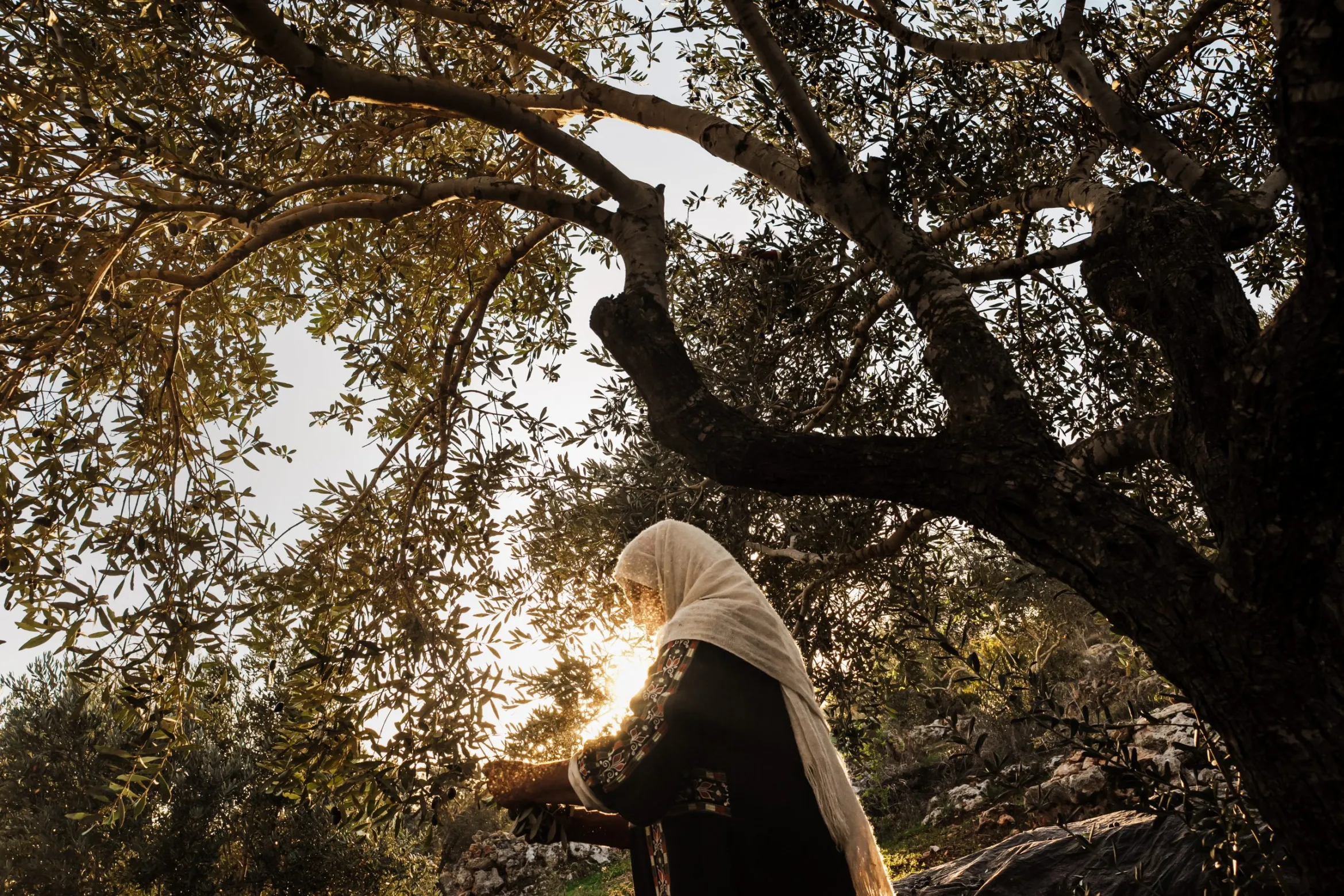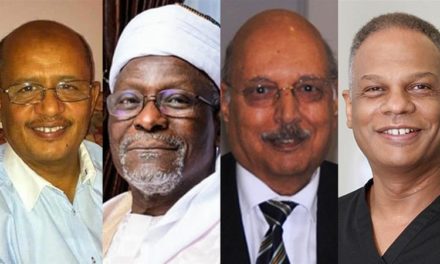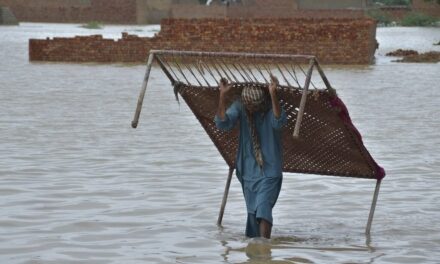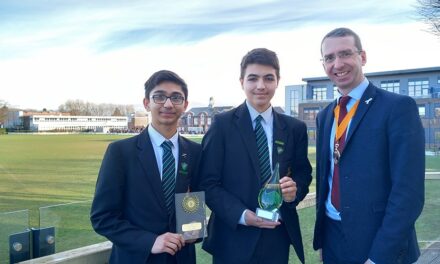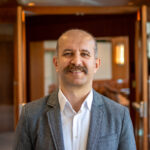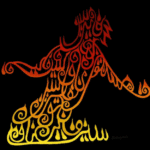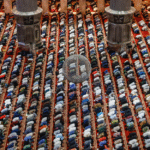TURMUS AYYA, OCCUPIED WEST BANK — DECEMBER 1, 2023: Amal Abu Awad, 59, harvests olives by hand, on their family groves next to their home in Turmus Ayya, Occupied West Bank, Friday, Dec. 1, 2023. Since the start of the Israel-Hamas war in October, olive farmers throughout the region worry that their way of life may be on the verge of extinction with settlers using the war as a pretext for a land grab. (MARCUS YAM / LOS ANGELES TIMES)
When Marcelle Afram was growing up in Silver Spring, Maryland, his mom would buy bushels of raw olives for preservation. Sitting in the family’s garage, they would clean and pit the olives before packing them in a salty brine. His mom distributed the olives to extended family and friends. Six thousand miles from Palestine, it was one way of being there.
Afram’s grandparents were born in Bethlehem, south of Jerusalem in the occupied West Bank. Exiled and made refugees in the 1948 Nakba, his grandparents immigrated to the U.S. by way of Syria and Lebanon. A generation later, his parents adapted Palestinian food and lifeways as a means of holding onto their heritage. But there was assimilation, a hiding demanded by anti-Arab and anti-Palestinian American culture. The restaurant run by his parents was branded as “Mediterranean” or “Middle Eastern”—never Palestinian.
But in 2021 when Afram started the pop-up concept of Shababi, meaning “my youthful people” in Arabic, he refused to hide. The signature smoked chicken, a recipe inspired by what his grandfather usually made during the olive harvest season in Bethlehem, is lathered in a blanket of Palestinian spices. Taboon, a kind of Palestinian bread, is bathed in olive oil before heading to the oven.
“I shed so much of my notions that I tried to live by—trying to believe in these Western ideals, trying to assimilate—that has really at no point in time benefited my people as a whole,” Afram said. “When it comes to my food work, there is just one focus. My people.”
Afram has never been to Palestine, but the lifeblood of Palestinian culture—olives—is ever present in his food. Though the recipes are different from what his grandparents would have made, this too is part of the story Afram wants to narrate: that of separation and returning. One is forced upon, and one is chosen; survival is the throughline. Food in America is essential for cultural survival, but in Afram’s case, the recipes are tools of memory-making. They send out a radio signal so as to say, we’re still here.
“It was really intentional for me to make food that was a narrative of my upbringing,” Afram said. “I never call my food authentic or traditional; I don’t even really know what that means when I’m how many years away from the homeland. I’m just kind of telling my own story on the plate: my story of diaspora while carrying the essence of the story of forced migration.”
“Olive trees really are the center of Palestinians’ world”
Food is a first line of defense against erasure and cultural dispossession. Food rejects the corrosive assimilatory politics of American culture, a thinking that says anyone can come here, but once here, you do not belong to anywhere else. Food makes and is identity. For Afram and others, cooking Palestinian food and highlighting the importance of olives keeps Palestine on the tongue. Even to say the name Palestine and to insist that there is a cuisine rooted in a place and nurtured by a people can be revolutionary.
Israel, which has maintained a colonial apartheid state for more than 75 years, insists that Palestine does not exist. Part of Israel’s nationalist self-conception is an effort to erase and replace any semblance of Palestinian life, starting with the land. The 1948 War—a war on Palestinians many say never really ended—gave a fledgling Israel control of more than 75% of Palestinian land.
Israel gave Hebrew place-names to cities and roads, terrorized and expelled whole neighborhoods, and crafted laws that provided legal coverage for taking land and moving into “abandoned” homes. Immigration into Israel after the Holocaust ballooned the Israeli population and bolstered its military numbers, and in the 1967 Six Day War, otherwise known as the Naksa, Israel invaded the West Bank and Gaza—what were supposed to be the two remaining places Palestinians could live free from Israeli occupation. For decades, Israel has forbidden the development of infrastructure by Palestinians and blocked access to grazing lands. Since 2000, around the time of the Second Intifada, the Israeli military has ramped up attacks on olive trees, groves, and orchards along with other agricultural lands.
The attacks were deliberate, said Mariam Al Jaajaa, the general manager of The Arab Group for the Protection of Nature, an independent organization dedicated to environmental protection against all threats, including war and occupation. “It was very clear that trees had become a target.” In the years following the Second Intifada, Israel has uprooted and destroyed 3 million olive and fruit-bearing trees.
This is devastating, said Al Jaajaa. About 100,000 Palestinian families rely on olive trees as their sole source of income. She said that because of violence during the harvest, farmers in the West Bank lost $11 million in revenue from the 2 million olive trees that weren’t picked, exacerbating already dire conditions of food and economic insecurity. The ecological consequences of such extreme desertification are also of concern. When arable land becomes unable to support plant life because of drought or abuse, it can be extremely challenging to replant. Once Israel forces Palestinians from their land, the message is clear: Don’t bother coming back.
“Olive trees really are the center of Palestinians’ world,” Al Jaajaa said. They’re also ubiquitous in Palestine, with almost half of all the farmed land in the occupied territories of the West Bank and Gaza planted with olive trees. Al Jaajaa said that Israel is aware of the connection between Palestine and its olive trees and sees severing it as a part of its ethnic cleansing project.
“The land is the main physical element that keeps people rooted where they are,” Al Jaajaa said. “People in Palestine, when their trees are uprooted, they go into tears, and they say, ‘They’ve murdered my family. These trees are my family.’”
If Israel ripped out one tree, Al Jaajaa’s organization resolved to plant 10 more. In 2001, they launched a campaign to plant 1 million trees in Palestine. Since then, they’ve planted nearly 3 million.
The Arab Group for the Protection of Nature worked with the international communications organization, A Growing Culture, to run a social media campaign and fundraiser. Seven dollars donated from anywhere in the world would pay for a tree planted in Palestine. The social media campaign was aimed at the Western world, mainly the U.S. and Europe.
Rohan Antony, a strategist with A Growing Culture, said that at first it wasn’t clear to the public what the connection was between olive trees and settler colonialism. “That was really important to get across for us—showing that tree planting can be an act of resistance,” Antony said.
Land is at the heart of all struggles. The settler-colonial project renders land a political object and marks those who stand against their land takeover as enemies. Even with the indelible connections between land and food, the latter is rarely seen as political or situated in the center of a struggle for existence.
According to Antony, many countries—including Israel—weaponize food to subjugate a people and sow conflict.
“Of course, land is at the center of it,” Antony said. “Uprooting olive trees is symbolic of everything that the settler state does.”
“Just about any way you can wreck a tree”
The war on Gaza, the U.S. funding of weapons, and international complicity with the genocide—most of it starts with misinformation or a lack of information, Al Jaajaa said. Israel’s war on Gaza illuminates the ways that the country will attempt to remake public consciousness, even as ample evidence contradicts what the regime presents as the truth. Israel’s disinformation campaign, called “Hasbara” in Hebrew, proffers a Zionist myth that Israel was “a land without a people for a people without a land.” Palestinians, much like any other Indigenous people, have existed with Palestine since time immemorial. A land is synonymous with the people who steward it.
To that end, more than 80% of the olive trees in Palestine are older than the state of Israel, as are the traditions and relationships that keep them alive. During olive harvest season, Palestinian families travel to their groves and spend days together picking and pruning trees. It’s an event, but it’s far from out of the ordinary. Families will sing, play instruments, and dance—the movements of the dabke involve stomping one’s foot, which is done around a newly planted olive tree.
It’s hard to overemphasize the olive tree’s presence and influence in Palestinian life, Al Jaajaa said. And as with every empire’s aim of colonial influence, what is done to the land is done to its people. The Israeli military will frequently burn and cut down trees, fill wells with cement, destroy water lines, and provide settlers with weapons. Israel has robbed Palestinians of 85% of their ancestral water rights and blocked their access to the Jordan River. As Palestinians in Gaza have come to over-rely on the Gaza Coastal Aquifer due to Israel’s refusal to support infrastructure expansion, saltwater has leached into the underground water source, impacting the drinking water supply.
Climate change makes available groundwater more challenging to come by; decreased rainfall in the winter months means less recharge of underground aquifers, and hotter summer months spell more evaporation of moisture from soil. Plants require certain conditions to grow, and as climate change propels, the growing season shortens, meaning less agricultural output. According to estimates prior to Oct. 7, 1 in 3 Palestinians lacked consistent access to food because of Israel’s blockade, rising to 2 in 3 for those in Gaza. Since the start of the war, no one in Gaza knows where their next meal is coming from.
Though settlements, starvation, and other attacks are illegal according to international law, Israel either bends existing laws to its will or blatantly ignores the law knowing it will face almost no repercussions. An antiquated law first imposed by the Ottoman Empire and later adopted by the British during the Mandatory period of Palestine states that any land not being cultivated can be taken from Palestinians. It was used by Zionists escaping persecution prior to the onset of the Second World War, and Al Jaajaa said that it’s still in use today. After tearing through olive groves, Al Jaajaa said the Israeli government will claim the land isn’t being used and encourage the construction of settlements on top of the destroyed orchards.
It’s gotten worse since the siege on Gaza escalated, Al Jaajaa said. Since Oct. 7 there’s been a “parallel war” in the West Bank, she said. An agricultural war.
Under its apartheid rule, Israel subjects Palestinians to bureaucratic rules that appear aimed at making it as difficult as possible to access land. For example, Palestinians must register for the olive harvest, acquire the accepted permits, and adhere to a strict schedule of when certain checkpoints and gates are open for passage. Increasingly, settlers are armed. There are accounts of settlers shooting—sometimes killing—Palestinians during the harvest.
“The settler violence is just unimaginably complicated and detailed and persistent. It’s difficult to access medical services or education. Every single thing is made impossible,” said Cassandra Dixon, an organizer with the Madison, Wisconsin-based Olive Harvest, a celebration and community event that allows Palestinians living in the diaspora to carry on traditions. The event is co-sponsored by the Madison-Rafah Sister City Project, which was started by a group of Madison residents in 2003 to educate the public about Palestinian resistance and conduct solidarity work.
Since 2006, Dixon has traveled to the West Bank once a year to support Palestinian families. While there, she accompanies Palestinian children to school and travels with farmers and families to the olive groves during harvest time.
Her presence as a white American can help deter settler violence. During her stays in Palestine, she’s witnessed Israeli settlers burning groves, slashing trees, and destroying newly planted trees.
“Just about any way you can wreck a tree,” Dixon said.
Belonging to the land
To Kamal Kamal, one of the sons of Yahia Kamal, the “baba”—or father—for whom the Kansas City, Missouri-based restaurant Baba’s Pantry is named, the state of Israel’s propensity for destruction has never made sense. To understand the importance of the olive tree, appreciate the relationship between a family and its grove, or even feel gratitude for what the tree provides, one has to fundamentally shift the relationship they have to their surroundings—from the desire to control to one of admiration.
“I think there’s a natural intuitiveness that comes with being Indigenous in regards to respecting land and belonging to it,” Kamal said. “You understand that your existence and everything revolves around nature.”
Kamal grew up in Palestine, learning from aunts, uncles, and grandparents about Palestinian food and food culture; which fruits to choose from the market; how to welcome guests into one’s home with tea and sweets; and how to be with the trees during the olive harvest, eating fried tomatoes and fresh pita during rest breaks.
The olive harvest was an opportunity to talk about seeds and plants, where trees come from, or how long the tree had been in the family. Israeli occupation often made a challenge out of getting the olives to a factory that could press them into oil, but Kamal said that neighbors and friends would come together to find ways around whatever the army tried to do.
He moved to the U.S. when he was a teenager, bringing some of those traditions along. Good za’atar, a Levantine herb mix usually made of oregano, sesame seeds, and sumac, tastes best when mixed with good Palestinian olive oil. To him, “those are the traditions that keep me connected.”
